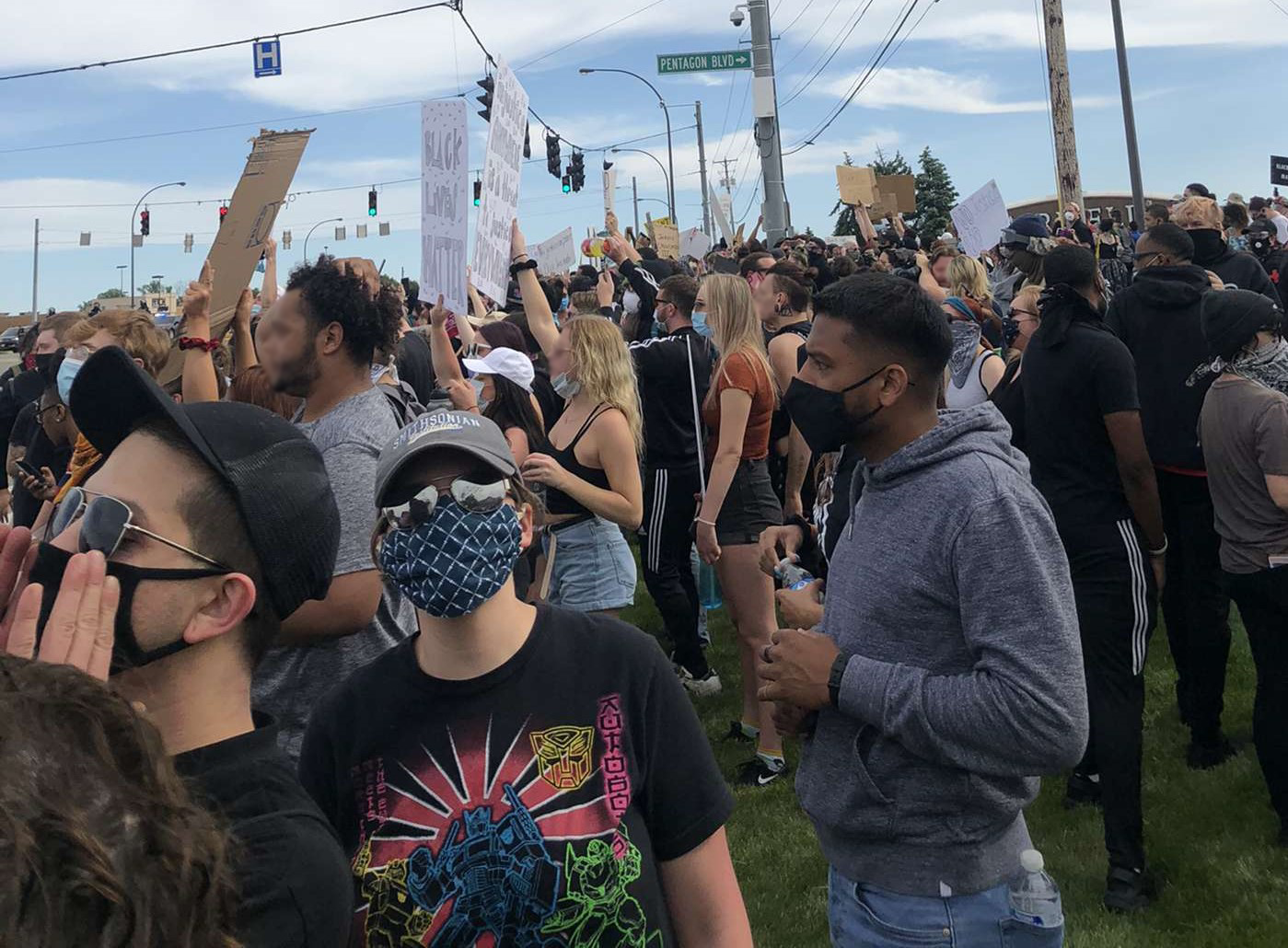
BLM protest in Beavercreek | Photo submitted by Maddie Cain
For those that are going to protest for the first time, your rights can be confusing at the moment. The items you should and shouldn’t take can be overwhelming. When being involved in a peaceful protest turns into chaos, make sure you know what to do and what to bring.
Here are the things to know before you go out to support the cause by ACLU and Poynter.
1. Record Everything
Document everything, especially when tensions grow. Video evidence is crucial, especially in the case of an arrest.
If you are live streaming, remember to have your settings on save to camera roll.
2. Don’t Wear Contacts or Makeup
If you come into contact with tear gas, the chemicals in make up and contacts in your eyes will only worsen the pain. Spray bottles of milk help to counteract the effects of tear gas.
Make sure to bring your own milk, (BYOM), and not to use random containers you find on the street.
3.Stay on the outside of crowds, and continue to update a planned escape route
Staying on the edge of crowds allows you to more easily escape, and as you move, it’s important to know the area around you. If things should escalate, it’s important to always keep in mind the safest way out.
4. Carry A Grab Bag
Important things to keep with you are a small first aid kit, water bottle, high protein snacks, washcloth, eye protection, a facemask, a portable phone charger and an extra shirt.
5. Go with A Group and Establish a Meeting Place
Planning ahead is crucial.
6. Turn Off Cellular Data and Do Not Share Your Location
These are both traceable, and could possibly put you into harm’s way.
Know Your Rights
Where Can I protest?
You are allowed to express your first amendment on any public property as long as you are not blocking any public or government building, or hindering any daily operations within the building. Protest on a Private Property is completely at the discretion of the property.
Do I need a permit before engaging or organizing A free speech activity?
You do not usually. However, you will for events such as the following:
“A March Or Parade that does not stay on the sidewalk, and other events that may require blocking traffic or street closure.”
“A Large Rally requiring the use of sound amplifying devices”
“A Rally at certain designated parks or plazas”
Can I distribute leaflets, pamphlets, etc. on the sidewalks?
Yes.
Do counter-protesters have free speech rights?
Yes. But, counter protesters “should not be allowed to physically disrupt the event they are protesting, they do have the right to be present and voice their displeasure. Police are permitted to keep two antagonistic groups separate from each other, but should allow them to be within the general vicinity of one another.
What do I do if I think my rights are being violated?
RECORD EVERYTHING YOU CAN
Write down everything you remember, especially the officer’s badge and patrol number, as well as the agency they work for.
Get contact information from your witnesses and take photographs of any injuries. Once you gather all of this information, make a written complaint
It is imperative to remember that under no circumstance can a police officer confiscate or demand to view your photographs or video without a warrant, nor may they delete data.
What if I am stopped by police?
Keep your hands visible at all times. Do not argue. Explain that the first amendment protects your actions and that you are not disrupting anyone else’s activity.
Do not leave until you ask, and are permitted to do so.
If you end up under arrest, you have the right to ask why.
In the case of an arrest, have a phone number written on your hand to contact.
